Number comparison Numbers Worksheets for Ages 3-8
11 filtered results
-
From - To
Explore our engaging "Number Comparison Worksheets" designed specifically for children aged 3-8! These interactive resources teach young learners how to compare numbers through fun activities and vibrant illustrations. Our worksheets focus on essential skills like identifying greater than, less than, and equal to concepts, promoting early math proficiency. Tailored for various learning styles, these activities cultivate critical thinking and problem-solving abilities while ensuring that learning is enjoyable. Perfect for use at home or in the classroom, our number comparison worksheets will equip your child with the foundation they need for future math success. Start their number journey today!
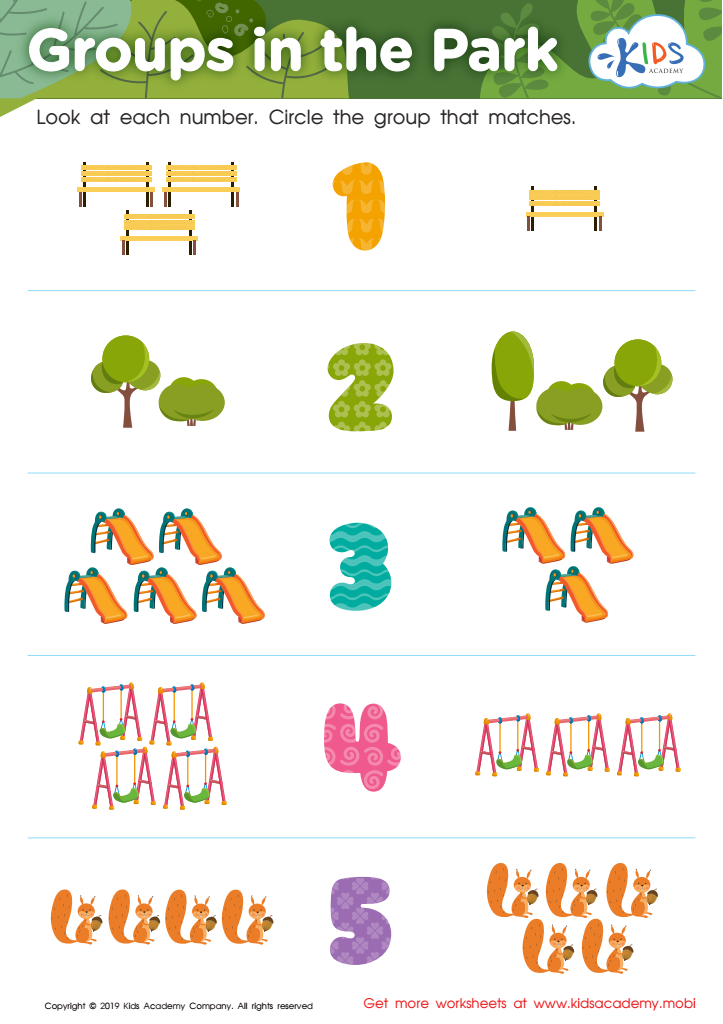

Groups in the Park Worksheet
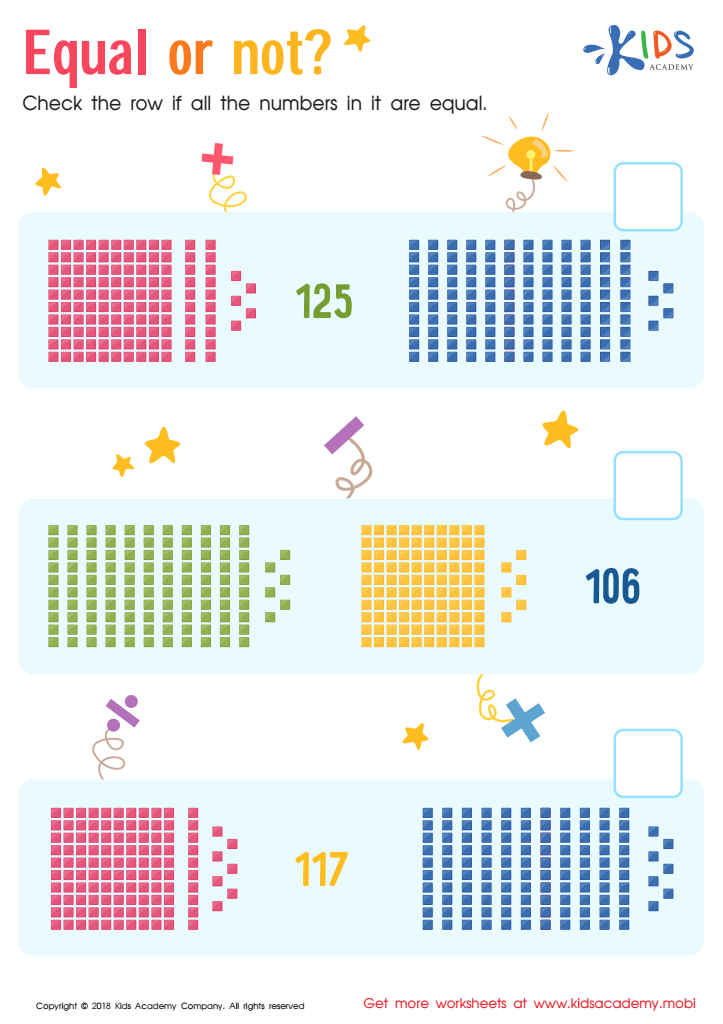

Equal or not Worksheet
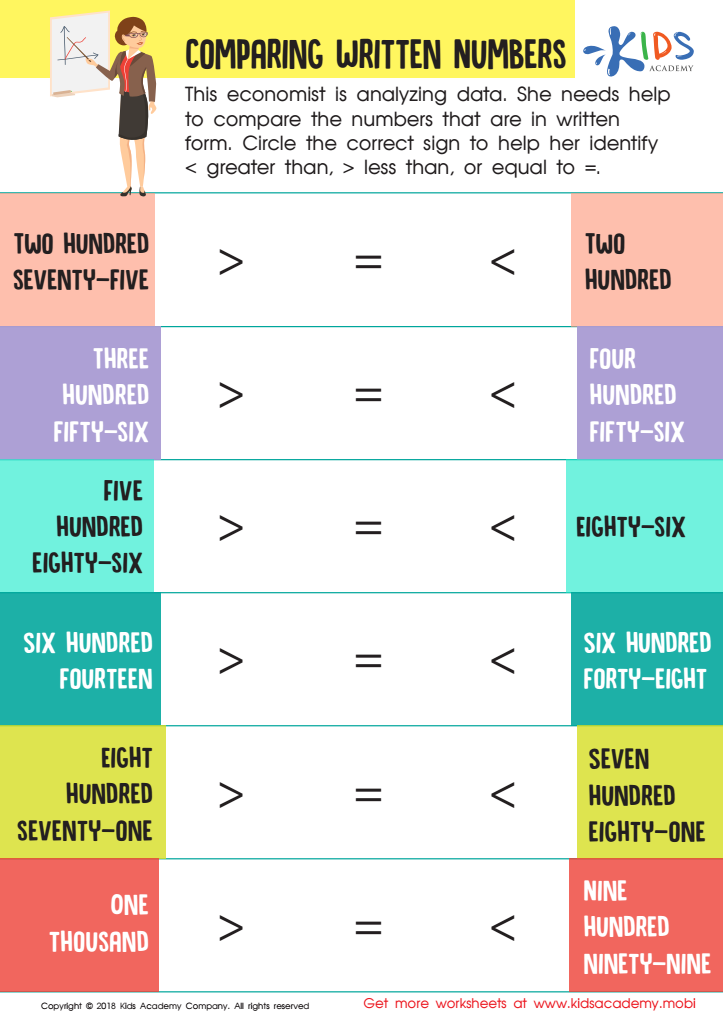

Comparing Written Numbers Worksheet
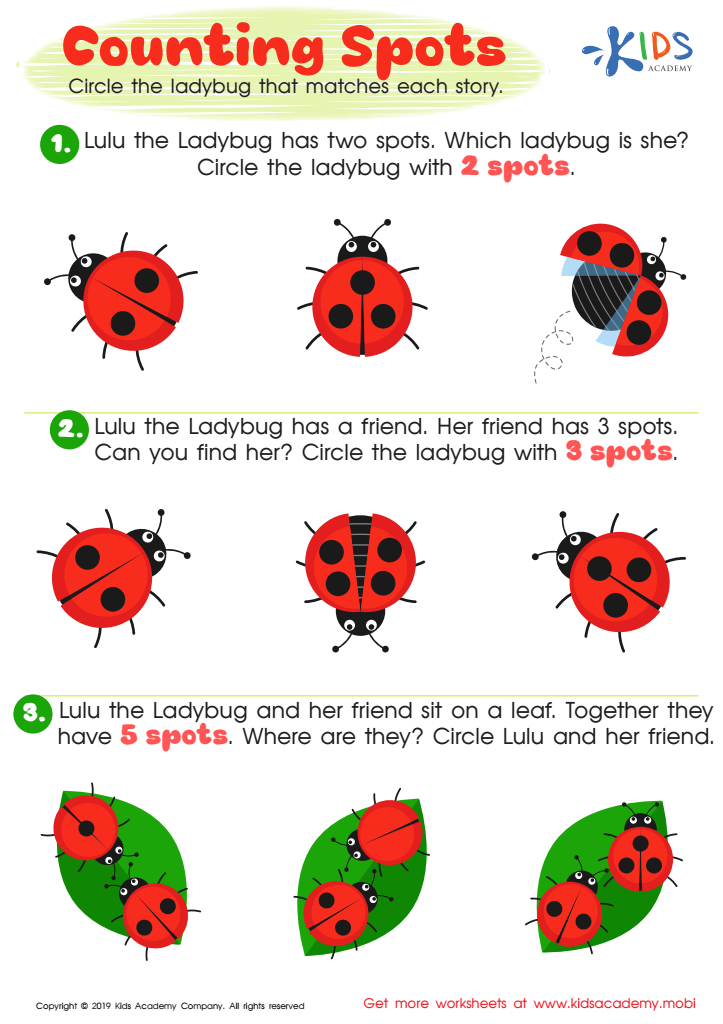

Counting Spots Worksheet
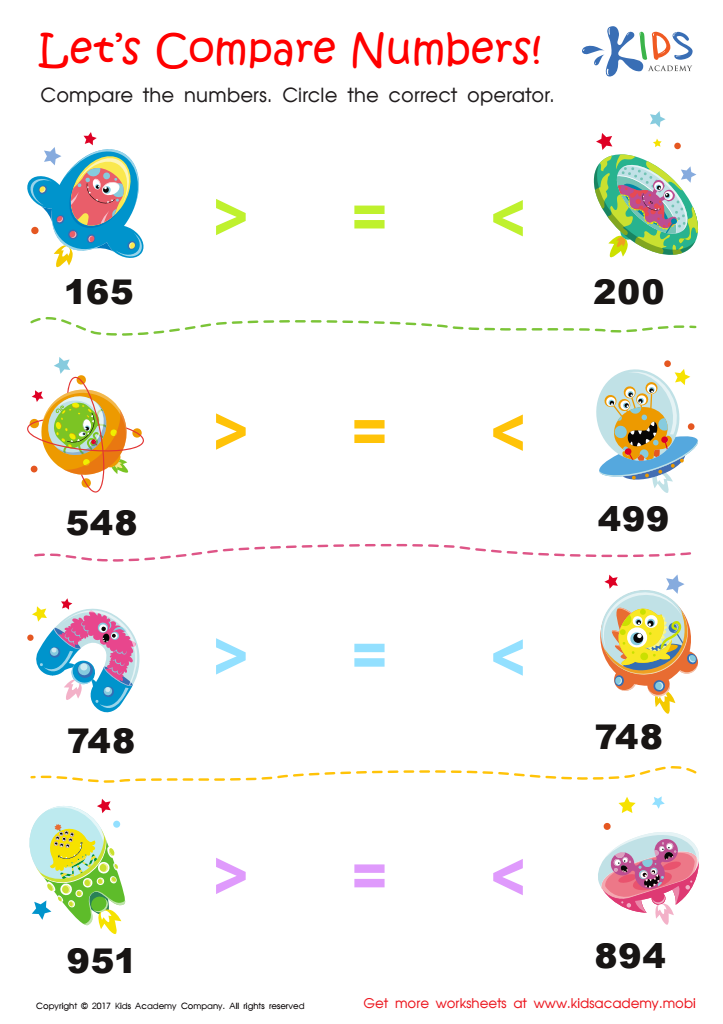

Comparing Numbers Worksheet for 2nd Grade
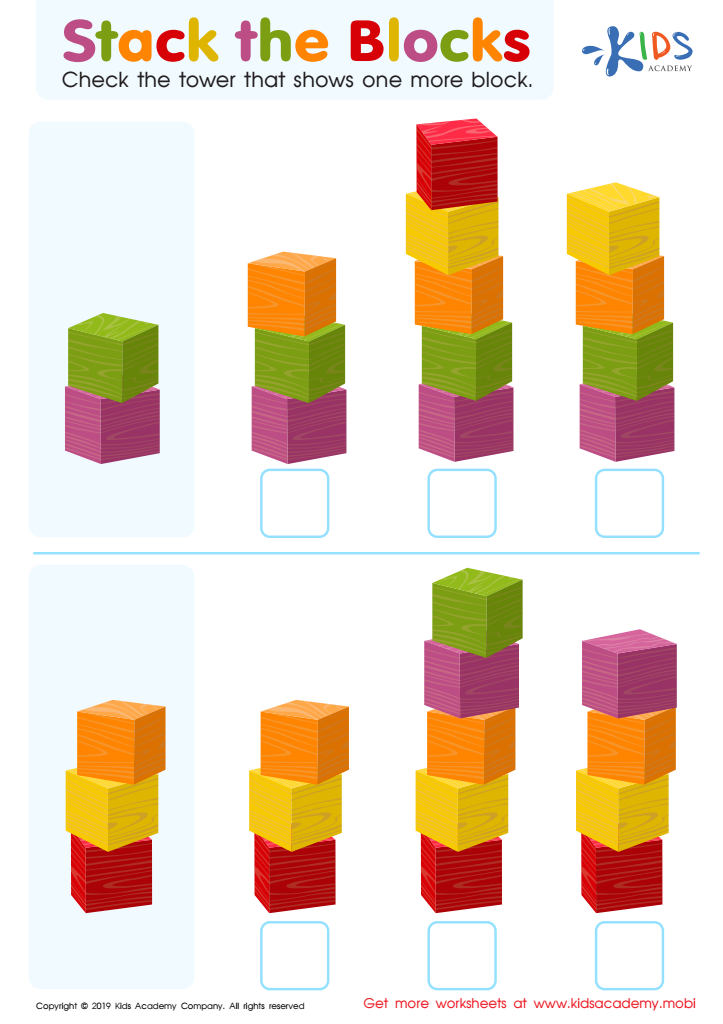

Stack the Blocks Worksheet
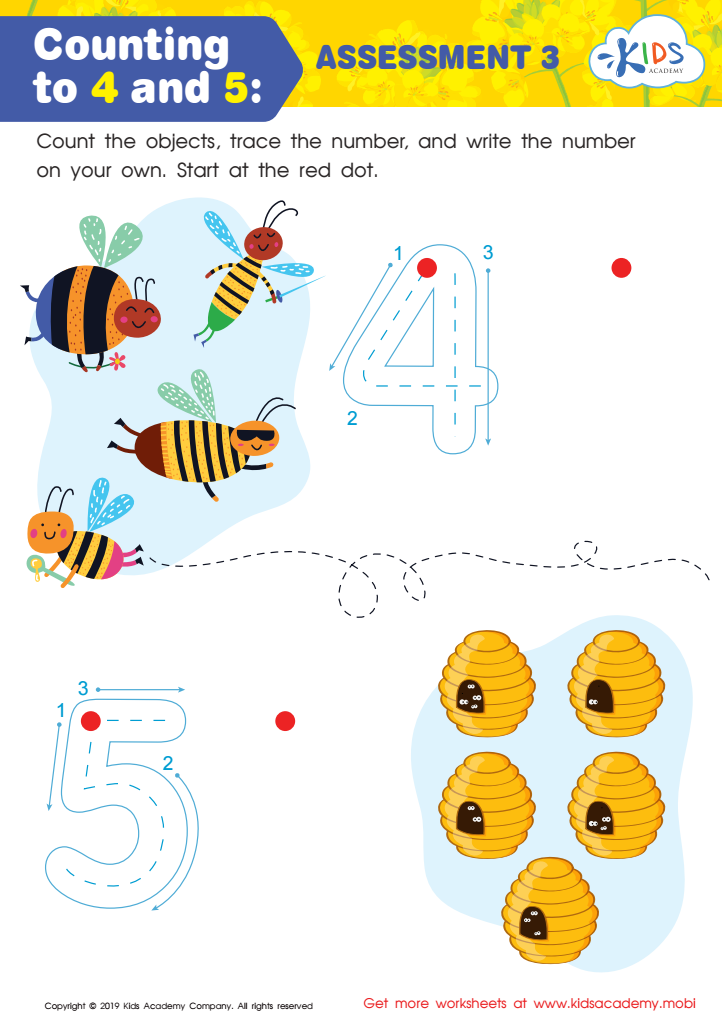

Counting to 4 and 5: Assessment 3 Worksheet
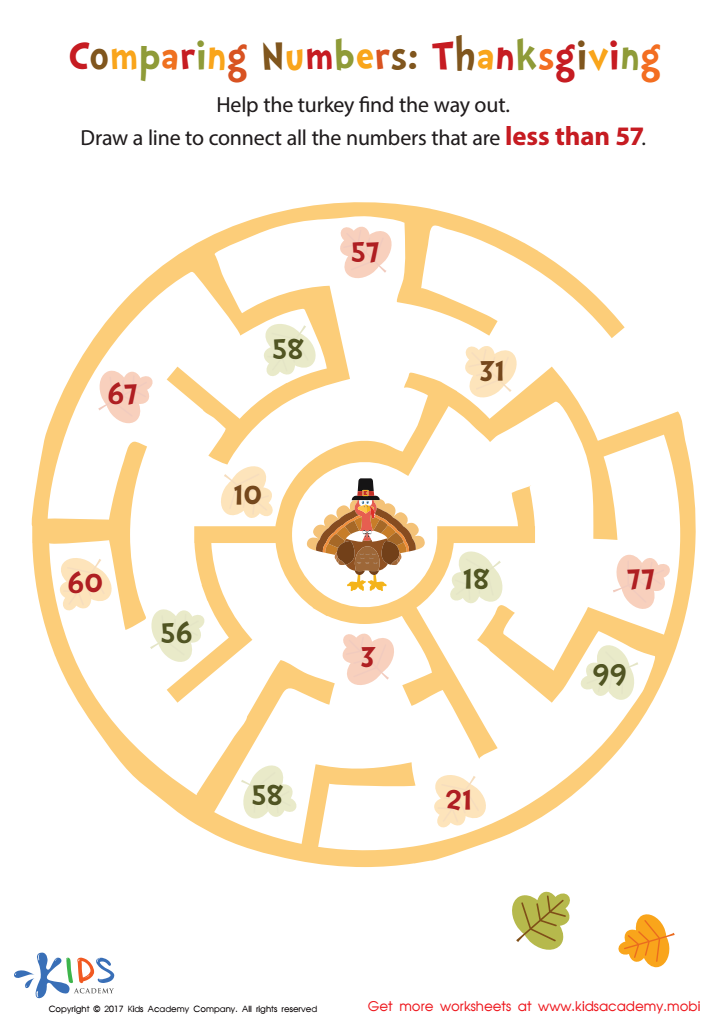

Comparing Numbers Printable
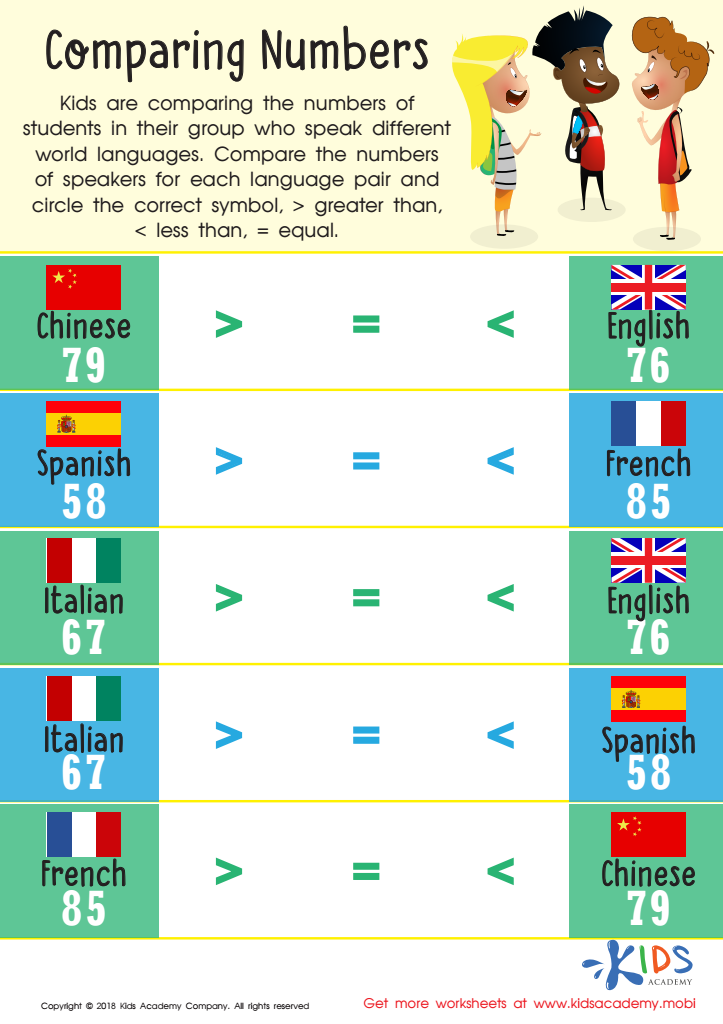

Comparing Numbers Worksheet for 1st Grade
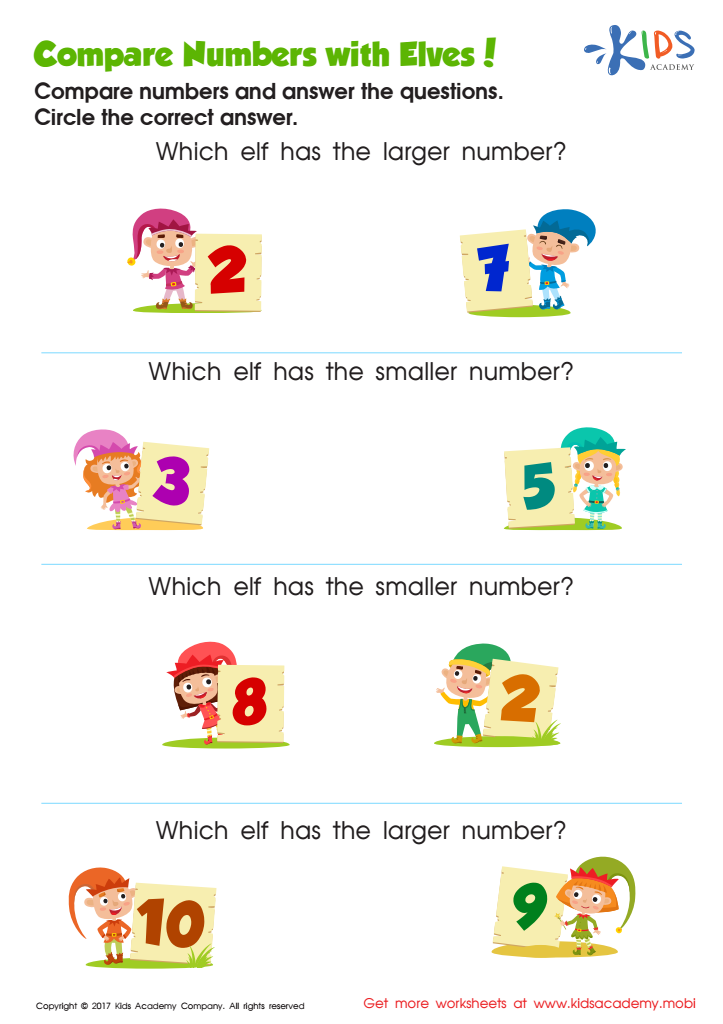

Comparing Numbers Worksheet for Kindergarten
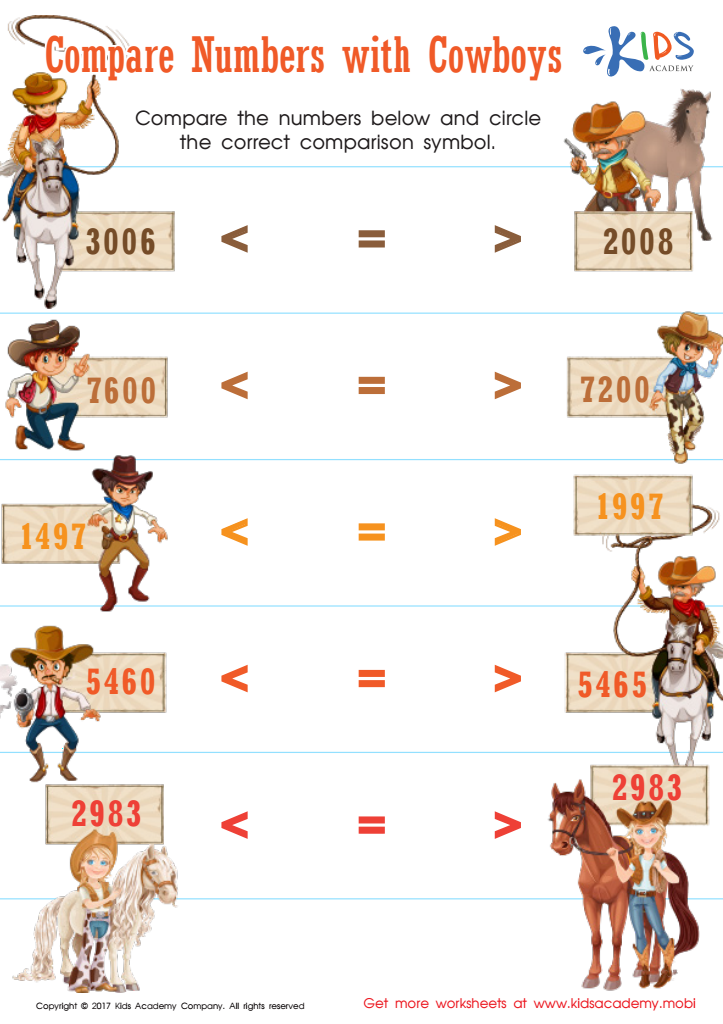

Compare Numbers Worksheet for 3rd Grade
Number comparison is a foundational skill in early mathematics development for children ages 3-8. Understanding how to compare numbers lays the groundwork for more advanced mathematical concepts, such as addition, subtraction, and problem-solving. Parents and teachers should care about this skill because it fosters critical thinking and reasoning abilities in young learners.
At this age, children begin to grasp quantities, sizes, and the idea of greater or lesser values. Engaging in number comparison activities not only enhances mathematical understanding but also supports cognitive development. By encouraging children to identify which number is larger or smaller, educators and parents help reinforce patterns and relationships in numbers, leading to better numerical literacy.
Moreover, number comparison activities can promote early language skills; children learn to articulate their understanding and make verbal comparisons, enriching their vocabulary. This practice naturally fosters healthy competition, motivation, and self-confidence as children succeed in various tasks.
Finally, early mastery of number comparison leads to stronger mathematical skills in later years, which is essential for academic success. Thus, parents and teachers play a crucial role in nurturing this important ability through engaging activities and reinforcing the concepts in daily routines.
 Assign to My Students
Assign to My Students




















